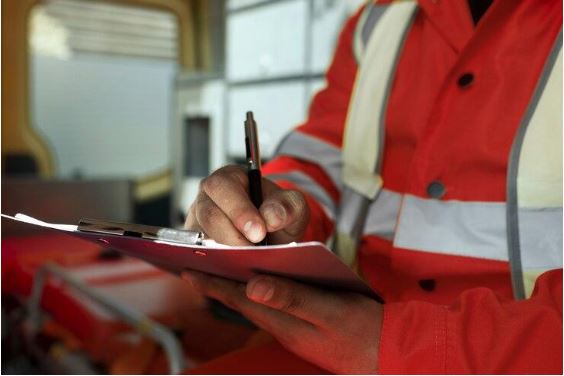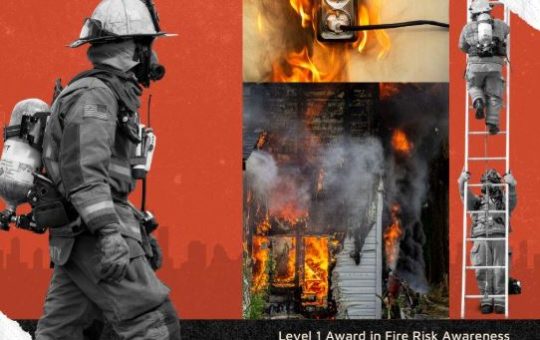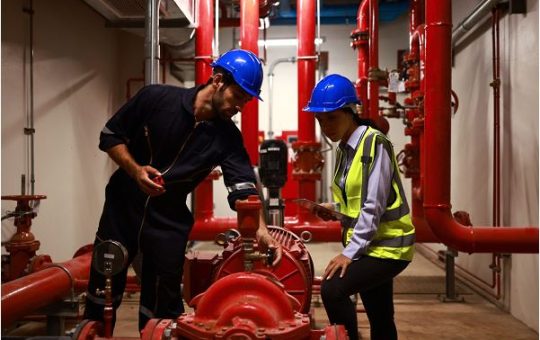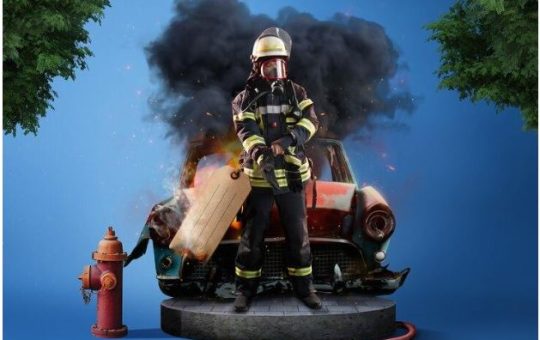
Fire Inspector Level-2
Fire Inspector Level 2 Course
Course OverviewThe Fire Inspector Level 2 course is designed for professionals looking to advance their expertise in fire inspection, code enforcement, and safety management. Building on the foundational knowledge of Level 1, this course delves deeper into complex fire codes, advanced inspection techniques, and regulatory compliance. Participants will learn to handle intricate inspection scenarios, analyze fire safety systems, and ensure adherence to international fire safety standards.This course is ideal for experienced fire inspectors, safety officers, and professionals aiming to enhance their roles in fire safety and risk management.Benefits- Advanced Knowledge: Gain in-depth understanding of complex fire codes and standards.
- Leadership Skills: Prepare for supervisory roles in fire inspection and code enforcement.
- Enhanced Expertise: Master advanced inspection techniques for diverse environments.
- Regulatory Compliance: Ensure organizations meet the highest standards of fire safety laws.
- Career Advancement: Open pathways to senior roles in fire safety and risk management.
- Perform advanced fire safety inspections and risk assessments.
- Interpret and apply complex fire codes and building regulations.
- Evaluate fire protection and suppression systems in detail.
- Develop and implement inspection programs for large-scale facilities.
- Analyze and document compliance with fire safety regulations.
- Collaborate with architects, engineers, and safety professionals to improve fire safety designs.
- Job Roles:
- Senior Fire Inspector
- Fire Safety Manager
- Compliance and Risk Management Specialist
- Further Training:
- Fire Investigator Certification
- NEBOSH Fire Safety and Risk Management
- Certified Fire Protection Specialist (CFPS)
- Industries:
- Oil and Gas Industry
- Construction and Engineering
- Government and Regulatory Bodies
- Healthcare and Education Sectors
- Leadership Pathways:
- This course prepares professionals to lead inspection teams, develop organizational fire safety policies, and contribute to fire safety engineering projects.
Study Units
The Fire Inspector Level 2 course includes the following modules:
- Advanced Fire Code Interpretation
- Comprehensive review of NFPA standards and other international fire codes
- Analyzing legal frameworks and compliance requirements
- Fire Safety Inspections in Complex Environments
- Conducting inspections in high-risk and large-scale facilities
- Inspection of industrial, healthcare, and high-rise buildings
- Fire Protection Systems Assessment
- Advanced evaluation of fire alarms, sprinklers, and suppression systems
- Ensuring operational readiness of fire safety equipment
- Construction and Building Materials
- Assessing fire resistance in building materials and structural components
- Reviewing fire safety in construction plans and modifications
- Emergency Preparedness and Evacuation
- Evaluating emergency response plans and evacuation strategies
- Collaborating with emergency services to enhance preparedness
- Documentation and Program Management
- Preparing detailed reports and corrective action plans
- Managing fire safety inspection programs within organizations
Upon successful completion of this qualification, learners will be able to:
Interpret and Apply Fire Codes: Demonstrate advanced understanding of national and international fire safety codes (NFPA, BS, IFC, etc.).
Conduct Detailed Inspections: Perform systematic inspections of complex buildings, facilities, and fire systems to identify risks and non-conformities.
Evaluate Fire Protection Systems: Assess the functionality, design, and maintenance of alarms, sprinklers, and suppression systems.
Analyze Building and Material Safety: Review fire-resistance ratings of structures and evaluate compliance of construction materials.
Manage Fire Safety Documentation: Prepare accurate inspection reports, compliance checklists, and corrective action plans.
Lead Fire Safety Programs: Coordinate inspection schedules, oversee safety audits, and mentor junior inspectors.
Enhance Emergency Preparedness: Evaluate evacuation procedures and recommend improvements for emergency response efficiency.
Collaborate with Stakeholders: Work effectively with architects, engineers, contractors, and enforcement authorities to achieve regulatory compliance.
Promote Continuous Improvement: Contribute to policy development and implementation of best practices for long-term fire safety management.
The Fire Inspector Level 2 Course is designed for professionals who already possess foundational knowledge of fire safety and wish to advance their technical and regulatory expertise. It is ideal for:
Fire Inspectors and Officers seeking to deepen their understanding of complex inspection environments.
Health & Safety Supervisors responsible for fire safety compliance and risk management.
Fire Protection Technicians involved in inspection and maintenance of fire suppression systems.
Building and Facility Inspectors ensuring construction projects comply with fire codes.
Safety Auditors and Compliance Officers verifying adherence to legal and regulatory fire safety standards.
Engineers, Architects, and Project Managers integrating advanced fire prevention measures into building design.
Professionals in High-Risk Industries such as oil & gas, healthcare, education, and industrial manufacturing.
Our assessment process is designed to ensure every learner achieves the required level of knowledge, skills, and understanding outlined in each course unit.
Purpose of Assessment
Assessment helps measure how well a learner has met the learning outcomes. It ensures consistency, quality, and fairness across all learners.
What Learners Need to Do
Learners must provide clear evidence that shows they have met all the learning outcomes and assessment criteria for each unit. This evidence can take different forms depending on the course and type of learning.
Types of Acceptable Evidence
Assignments, reports, or projects
Worksheets or written tasks
Portfolios of practical work
Answers to oral or written questions
Test or exam papers
Understanding the Structure
Learning outcomes explain what learners should know, understand, or be able to do.
Assessment criteria set the standard learners must meet to achieve each learning outcome.
Assessment Guidelines
All assessment must be authentic, current, and relevant to the unit.
Evidence must match each assessment criterion clearly.
Plagiarism or copied work is not accepted.
All learners must complete assessments within the given timelines.
Where applicable, assessments may be reviewed or verified by internal or external quality assurers.
Full learning outcomes and assessment criteria for each qualification are available from page 8 of the course handbook.
Top Courses
Related Courses
Let's Get in touch
Deleting Course Review
Course Access
This course is password protected. To access it please enter your password below:



